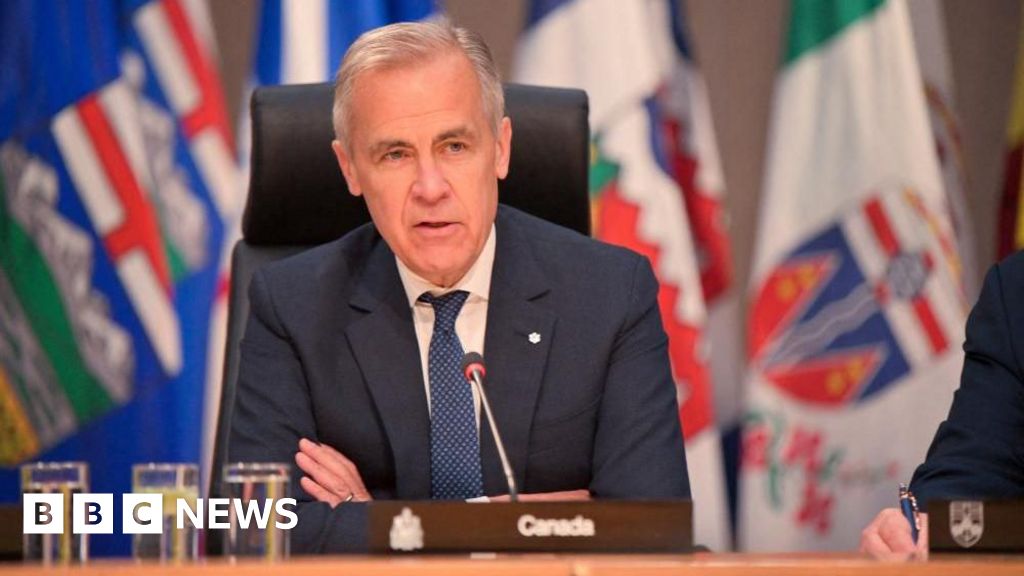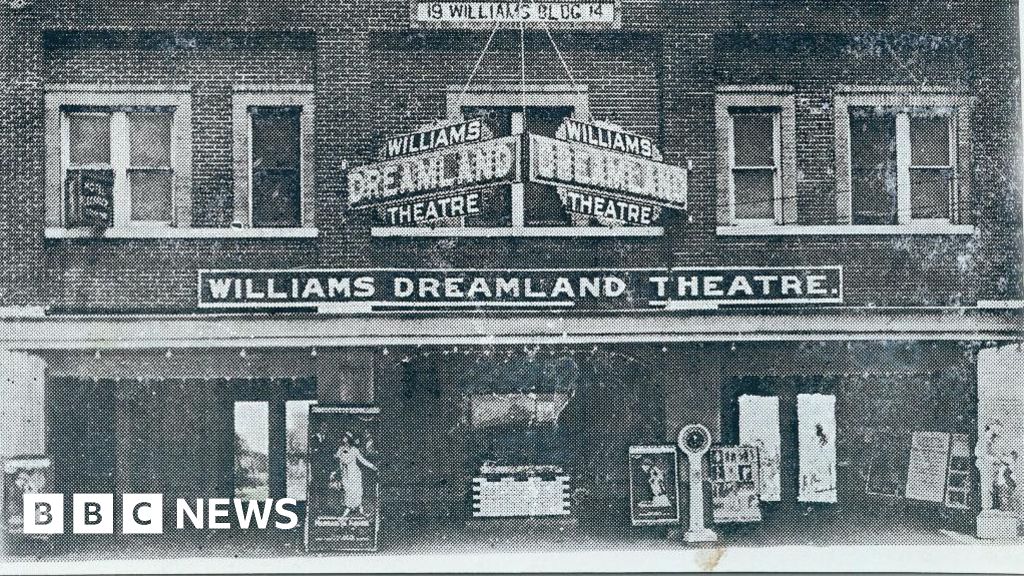ARTICLE AD BOX
By Tara McKelvey and Boer Deng
BBC News, Washington DC
Declaring his support for the Afghan war decades ago, Joe Biden warned: "History is going to judge us very harshly, I believe, if we allow the hope of a liberated Afghanistan to evaporate because we are fearful of the phrase nation-building or we do not stay the course." Will this be the week that history judges his presidency?
West Wing assistants tapped at keyboards, heads down, while aides chatted away as if business as usual, belying the chaos unfolding in the wider world.
The stunning fall of Afghanistan back into Taliban hands as the US was ending its 20-year war had brought about a crisis gripping all corners from Kabul to Camp David.
Over the six days that saw Western allies forced to airlift citizens, Afghans desperately clinging to planes to leave the country and a volte-face on Mr Biden's promise to withdraw troops by 31 August, his promises of competence and strength had for some begun to ring hollow.
Heading into a week that will bring a congressional hearing on the exit and massive efforts to step up the pace of evacuations, few seemed satisfied with what little answer the administration has provided about what has been widely seen as Mr Biden's worst days of governance.
Mr Biden sat alone in a conference room before a panel of faces on the screen, his national security team virtually beamed in to Camp David, the presidential retreat outside Washington where he had gone for the weekend.
The trip, planned for Friday to Wednesday, had not gone as planned.
The world awoke to news last Saturday that Taliban fighters had taken the southern city of Kandahar and were making a swift advance upon Kabul. By Sunday, the capital was breached.
What had happened that brought about such a sudden and apparently unexpected collapse?
In every public appearance, Mr Biden would characterise the events of the week as a binary choice between staying and going.
He said the intelligence he was given had not come to any consensus on how quickly Afghan forces could fall to the Taliban.
"The idea that the Taliban would take over was premised on the notion that somehow, the 300,000 troops we had trained and equipped were going to just collapse, they were going to give up," he told ABC News on Wednesday. "I don't think anybody anticipated that."
Yet intelligence sources said that the administration had been given warnings about the frailty of the situation. Internal reports leaked to US media over the past months and weeks had suggested that the Afghan government could collapse within 30 days - or even quicker.
The state department had gamed out worst-case scenarios akin to what has unfolded, according to well-placed sources.
"It was not an intel failure," said Christine Fair, a political scientist at Georgetown University, who has discussed Afghanistan with the president. "Biden's essentially doing what he always wanted to do."
"The solution for him was: 'OK, we're just going to go home.' He wanted to pull the Band-Aid off," she said.
That was the message Mr Biden's advisers would deliver to members of Congress on Sunday morning as Kabul fell.
In a telephone conference, Tony Blinken, the US Secretary of State, Mark Milley, Chairman of the Joint Chiefs of Staff, and Lloyd Austin, the Defence Secretary, defended the president's pull-out.
It lasted a little under an hour and revealed nothing that had not been publicly said, according to Tom Malinowski, a New Jersey Democratic congressman, and others on the call. The withdrawal should have been carried out "on the basis of a plan worked out with the Afghan government, to enable the Afghan military to stand on its own", Malinowski said.
Critics were soon publicly excoriating Mr Biden for his silence and absence, and even allies reportedly urged him to address the nation.
"While President Joe Biden cowers at Camp David, the Taliban are humiliating America," Ben Sasse, a Republican Nebraska senator, wrote in National Review, a conservative magazine.
Marco Rubio, another Republican senator, claimed on Twitter that Mr Biden "was specifically told Afghan forces would surrender faster than our ability to exit".
Amid the tempest, Mr Biden cut short his trip and returned to Washington.
The mood at the White House on Monday was sombre, with an unusual number of Secret Service agents in the West Wing and the residence co-ordinating security for Mr Biden's comings and goings.
The speech he delivered, written himself with the help of his adviser Mike Donilon and a few aides, was a full-throated defence.
"If anything, the developments of the past week reinforce that ending US military involvement in Afghanistan now was the right decision," said Mr Biden.
It did not address the evacuation crisis and the images of chaos.
Asked about the events on the ground, Jen Psaki, the White House spokeswoman, pausing outside her office, said only that "it's difficult to watch", but that Mr Biden believed he was doing the right thing.
He took no questions and returned to Camp David afterwards to receive further briefings.
Snap polls throughout the week reveal that Americans disagreed with Mr Biden's assessment. By Tuesday, his approval rating fell below 50% for the first time in his tenure, according to an Ipsos/Reuters survey.
By Wednesday support for withdrawal, which had been consistently high in the US, plummeted to 47% from above 70% last month, AP found.
Many found it difficult to reconcile the assuring messages the Biden administration had been putting out for months with reality. In June, Mr Blinken had testified to Congress that there was no expectation a Taliban takeover could happen "from a Friday to a Monday".
Mr Biden had claimed in July there would be "no circumstance where you see people being lifted off the roof of an embassy".
The Pentagon was now admitting that Kabul would become the second largest civilian evacuation effort ever undertaken by the US military, after the American exit from Saigon.
When Mr Biden sat down to answer questions on the withdrawal for the first time midweek, he told ABC he believed there was no circumstance under which chaos would have been avoided.
Asked if the withdrawal could have been handled better in any way, Mr Biden replied: "No."
Privately, there was sense of frustration within the ranks of civil service at the detachment projected by administration officials - the disconnect between their ideas of what should be done, and what was happening on the ground.
The president appeared again on Friday to take questions from the press, vowing that all Americans would be taken out of Afghanistan with 6,000 troops now on the ground. However, he admitted he "cannot promise what the final outcome will be".
image sourceUS Air Mobility Command
image captionHundreds of Afghans fleeing Kabul on board an American C-17 cargo plane
 3 years ago
237
3 years ago
237








 English (US) ·
English (US) ·